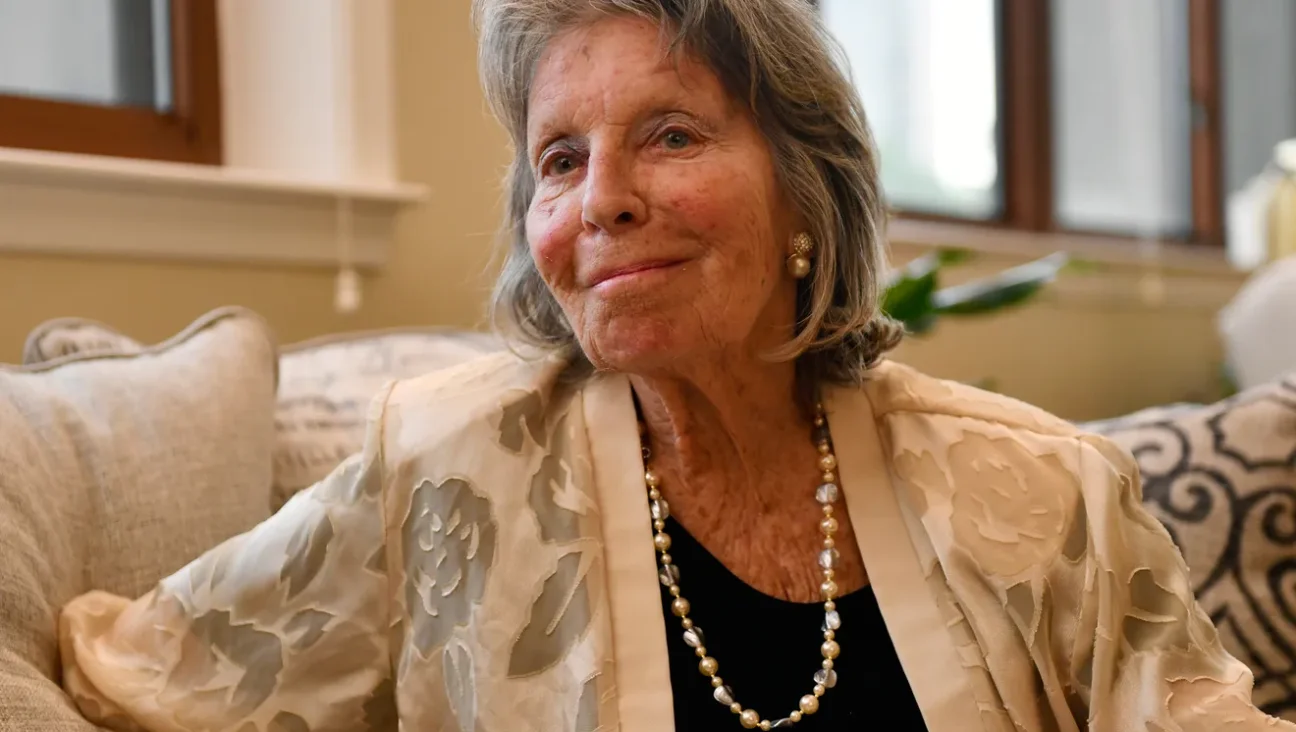Empowering Israeli Women To Monetize Their Cooking Skills

Klara, showing off her Bukharian plav. Image by Shira Feder
Jewish food is about a whole lot more than just bagels and lox. It’s Bukharian peraskhi, it’s Ethiopian injera, and it’s Moroccan stew. And on a recent chilly weekend in the Queens Bukharian Jewish Center, the non-profit Women Cook, along with Council Member Karen Koslowitz, tried to prove that to the world.
The festival was the brainchild of Koslowitz, inspired by the homey meals she had on a recent City Council-sponsored trip to Israel. When Koslowitz heard the women who fed her were coming to New York, she decided to plan a food festival around them.
The concept snowballed, until it became five women representing five Jewish food cultures: Bukharian, Kurdish, Yemenite, and Ethiopian to Moroccan. Before they became a part of Women Cook, “these women were domesticated, they weren’t doing much, all they had were their traditional cooking skills,” said David Aronov, Director of Community Relations for Koslowitz. Started in 2006, Women Cook was a way for these women to earn an income.
According to President Betty Yusupov of the Bukharian Jewish Union, where the event was held, this evening was about dispelling stereotypes of the Bukharian community. “Stereotypes come from a small amount of people with big mouths,” she said. (The particular stereotype she’s referring to here is that Bukharian men are not comfortable with their wives or daughters working.) Yusupov considers the financial empowerment of women an imperative. “My goal at the Bukharian Union is to raise awareness that there are different kinds of Jews, and to create solidarity between different kinds of people,” she said.

Feteg Andarga serves up some injera from Ethiopia. Image by Shira Feder
Present that evening was Osnat Moshe, a Kurdish-Israeli Jew, who is the proud grandmother of 16 grandchildren; alongside Bracha Ben Ezra, who stood over her steaming Moroccan stew with pride; Drora Meidani, who traveled the treacherous journey from Yemen to Israel; and Ethiopian-born Feteg Andarga, who honed her cooking skills after years of growing tomatoes in hothouses. All the women wore traditional garb, wielding spatulas to crowds of foodies clutching plastic plates.
Koslowitz surveyed the crowd and smiled. The smells of cumin, za’atar and harissa gently wafted through the room. “Looks good,” she said. It tasted good, too.
Shira Feder is a writer. She’s at [email protected] and @shirafeder
A message from our Publisher & CEO Rachel Fishman Feddersen

I hope you appreciated this article. Before you go, I’d like to ask you to please support the Forward’s award-winning, nonprofit journalism so that we can be prepared for whatever news 2025 brings.
At a time when other newsrooms are closing or cutting back, the Forward has removed its paywall and invested additional resources to report on the ground from Israel and around the U.S. on the impact of the war, rising antisemitism and polarized discourse.
Readers like you make it all possible. Support our work by becoming a Forward Member and connect with our journalism and your community.
— Rachel Fishman Feddersen, Publisher and CEO























